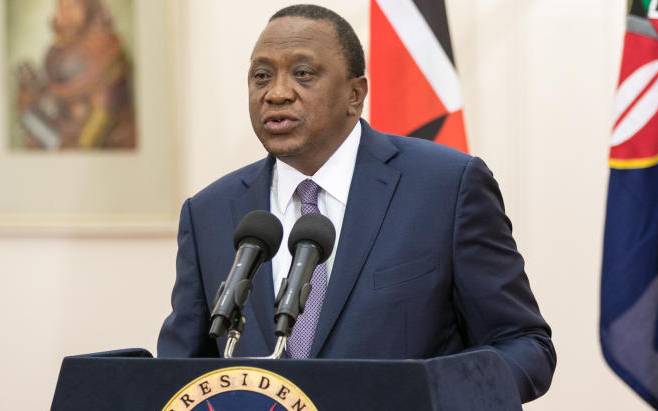×
The Standard e-Paper
Kenya’s Boldest Voice

President Uhuru Kenyatta when he gave a statement on the conclusion of mass registration for Huduma Namba at State House, Nairobi. [File, Standard]
VANCOUVER, Canada: President Uhuru Kenyatta has today announced a ban on the use of single-use plastics in protected areas in the country.